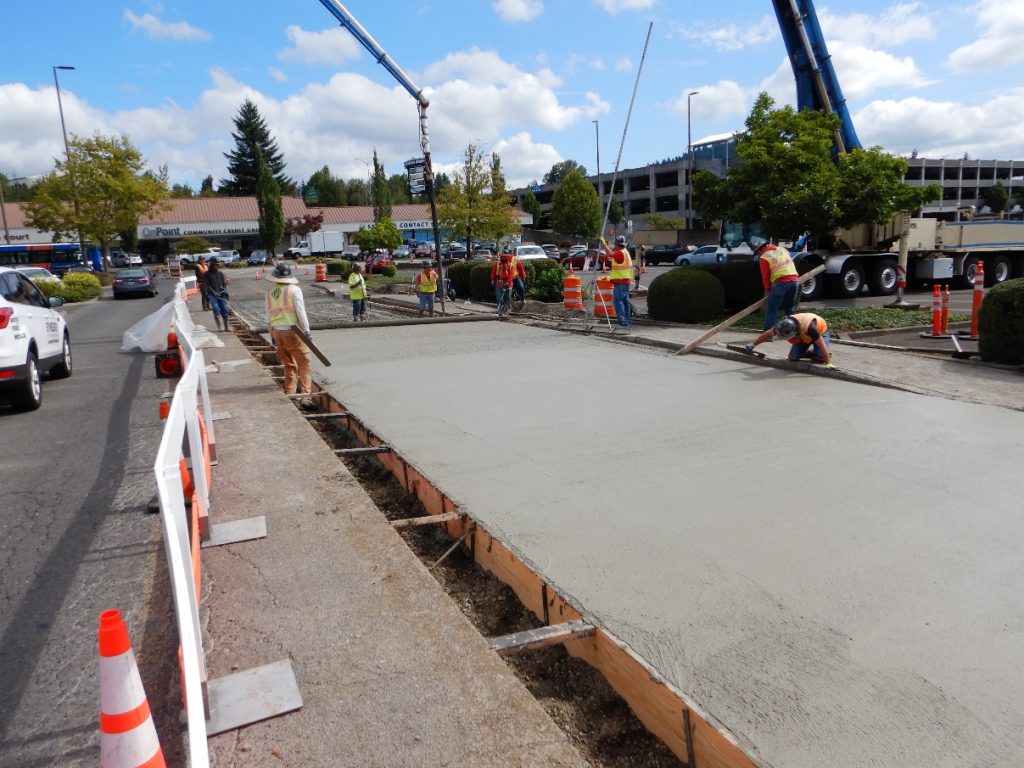
Portland cement concrete (PCC) is primarily a composition of Portland cement, water, rock, and sand. Portland cement is manufactured by grinding limestone, iron ore and/or fly ash into a powder and feeding into a rotary kiln at 2,700 degrees Fahrenheit. Not unlike the residue of a coal furnace, clinkers are the result, though the limestone clinkers form small marbles. These limestone clinkers are again ground with some gypsum into a fine powder. Interesting fact: a pound of Portland cement contains 150 BILLION grains of cement particles – it is an exceptionally fine powder.
To make concrete, the kiln-produced Portland cement is mixed with aggregate and water in a batch process. That is each load of PCC in a concrete mix truck was mixed in a drum and poured into the mix truck. The Portland cement concrete is mixed on the way to the job site. Once on site, additional water or additives can be included into the mixture before pouring through a chute onto the work area.
The photograph shows a project at Clackamas Town Center where the asphalt concrete roadway is replaced with an eleven-inch-thick Portland cement concrete pavement. Note the pavement thickness is controlled by the wood boards at the new road’s edges. The vertical, blue tube is the boom of a concrete pump truck (to the right of the photograph) pumping PCC to the roadway. A finishing crew is placing the PCC; followed by a screed (roller) to level the mixture; then finishers further smooth the PCC and, finally, drag a rake through the surface to make grooves for skid resistance.
The result will be an exceptionally long performing PCC pavement to accommodate heavy bus traffic.
Zimmer Consultants photograph